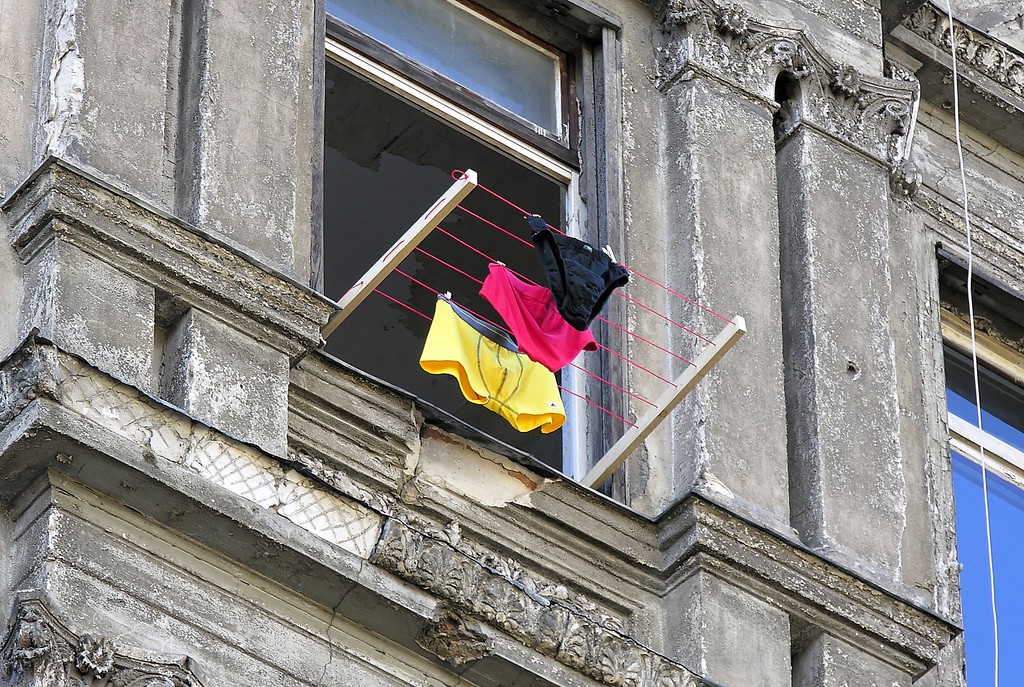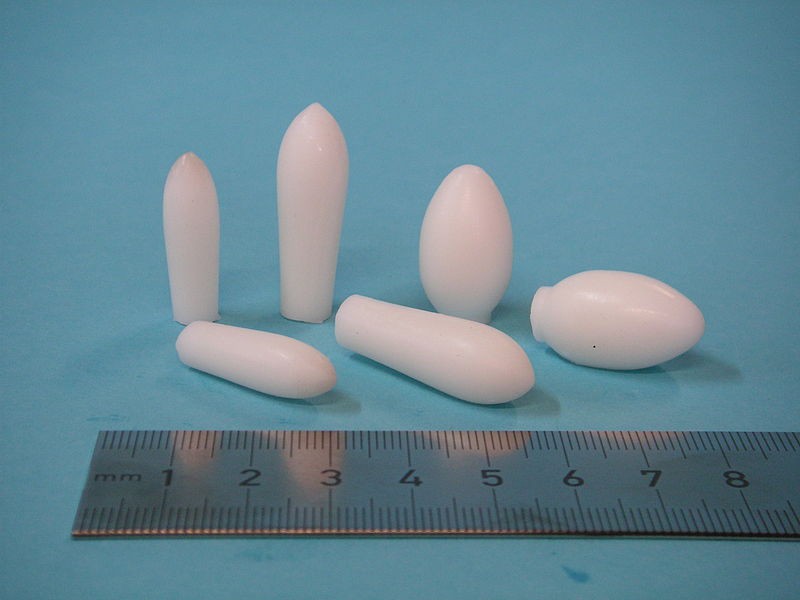The German Healthcare System is Homeopathy and Butt Stuff
Deutschland über us.

As our American political leaders assume the mantle of Manifest Destiny and busy themselves with the Christian task of figuring out the cheapest way to kill as many elderly people as possible, they’ve also got a visitor: German Chancellor Angela Merkel is stopping by the White House this week.
And, after she exhausted what I am assuming was an uninterrupted 90-minute litany of corrections to the President’s spelling and grammar, she might also have mentioned that in her country, most of the old people are still alive, for now. For when it comes to health care in Germany, you see, there’s an uninsured rate of approximately zero percent, on account of there’s a rule that everyone has to have it, and, well.
I am betting, however, that Merkel failed to touch upon the vitriolic healthcare debate currently raging in her precious country. Ja, what Merkel might not have mentioned — however germane it might have been to the discussion, given that it involves both universal health coverage and the “Mistake Devil,” i.e., Twitter typos — is, per this enthralling column in Der Spiegel, the brouhaha over one of the Volk’s favorite subjects: Homeopathy.
Homöopathie-Debatte: Die unsichtbare Teekanne – SPIEGEL ONLINE – Wissenschaft
Here are some things you need to know immediately, before can I even start with this:
- Germany offers both public and private health insurance programs, allowing its citizens to be forced into either a socialist or capitalist freedomless nightmare.
- German doctors require full nudity instead of one of those stupid paper gowns. (Not relevant, but important nonetheless, both for Germans visiting American doctors for the first time, and vice versa.)
- German health insurance works like this: workers pay 8 percent of their income towards their health insurance, a number their employers match.
- Homeopathy, as well as a variety of other alternative medical treatments that would make Paul Ryan projectile-vomit his Creatine, is covered under many private German health-insurance plans.
- German homeopathic remedies are tiny little white balls. They are technically called Globuli, but colloquially known as Kügelchen (KOO-gul-shen), which literally means “little balls,” but uses the common German diminutive suffix -chen, which colloquially is similar to our “-ie” suffix, so I command you to think of them as ballies.
- The Germans who like homeopathy FUCKING LOVE IT and would just as soon rip your intestines out and then instruct you to heal that wound by placing six feverfew Kügelchen on your tongue and letting them dissolve, than visit a regular doctor. “NICHT KAUEN!” they will remind you, as you bleed out. DON’T CHEW THEM! Otherwise they lose efficacy!

Speaking of efficacy, this brings me to German Twitter, and a medical doctor by the name of C. Lübbers, who Tweeted at the corporate account of the Techniker Krankenkasse, one of Germany’s larger private purveyors of insurance, linking to this study of 44,550 German patients insured with Techniker, which concluded: “Compared with usual care, additional homeopathic treatment was associated with significantly higher costs.”
Homöopathie verursacht bei 44.550 Patienten der @DieTechniker HÖHERE Kosten als die ‘normale’ Therapie! Cui bono? https://t.co/bC4z54DIQv
Translation: “#Homeopathy causes HIGHER costs than ‘normal’ therapy in 44,550 patients of @DieTechniker!”
Lübbers’ rejoinder also prompted the following question from Techniker policy holder and otherwise utterly random Twitter dude, Oliver Scheele, who wanted to know why his premiums subsidized something whose legitimacy he doubted: “Dear @DieTechniker, can you give me, as one of your insured, any clean scientific studies proving the efficacy of homeopathy?”
Today, Scheele’s pinned Tweet is this (in English):
Never, ever, take the corporate Twitter account to a bar.
— @IlloSZ
And here is why. Several hours after his question about a scientific study, somebody — the Mistake Devil, perhaps? — started Tweeting from the Techniker account at 1 a.m., and the result was this:
Lieber@IlloSZ ,können sie uns saubere,wissenschaftliche Studien nennen, die die Nicht-Wirksamkeit von Homöopathie belegen?
Translation: “Dear @IlloSZ ,can you offer us clean scientific evidence that proves the inefficacy of homeopathy?”
The mis-comma’d Tweet in question was time-stamped 1 a.m. What resulted, according to Spiegel columnist Christian Stöcker, was an “intense reaction,” but not so much a “Shitstorm” as a “rationality storm.”
“Well-informed Twitter users pointed out…that there are many, many studies that could not provide proof of the efficacy of homeopathy.” The resulting thread, Stöcker writes, is a “font of high-quality research on the subject.” (This is a German being sarcastic: the thread consists of some poor bastard at Techniker admitting over and over again that the 1 a.m. Tweet was unsachlich, which means “impertinent,” but literally means both “un-businesslike” and “contrafactual.”)
And YET: Was the entire kerfuffle for nichts? Although the costs incurred by patients who visit homeopaths might be higher than the costs of those who see only regular doctors (which Techniker unfortunately referred to as practitioners of Schulmedizin, or “school medicine,” read by some as akin to dismissive snort at book-learnin’), homeopathy in general makes up a Kügelchen-sized portion of overall German healthcare: .06 percent of insurance expenditures, to be precise. And so, writes Stöcker, “the financing of a belief system which has not been muddied by such things as empirical certainty is ultimately a comparatively inexpensive marketing measure.”
What did not come up in this debate once, however, is the real reason Germans who see medical doctors cost their insurers less than the homeopathy devotees: Germans almost never use medication, because German medication is often administered anally.
This is not a readily available fact in any guide book that I know of, so if you are planning to spend any significant amount of time in Germany in the future — if, for example, you’d like to move somewhere with universal healthcare coverage when you get old, so as not to die unnecessarily — just know that the price of not dying might be your ass’s dignity.
I learned this the hard way on an awkward afternoon in March of 1997, when, suffering from a rather acute bout of menstrual cramps, I hobbled into my local Apotheke (AH-po-TAY-kuh), or “apothecary,” which is where you go to get drugs, as opposed to a Drogerie, or “drug store,” which sells tampons specially designed for use during sexual intercourse, but zero drugs. And, if you think you can just slink around the Apotheke undetected until you locate, say, your penis-fungus cream and pay for it surreptitiously, you are very incorrect. All relevant wares at the Apotheke are behind the counter, and, prescription or no, what you have to do is waltz in and proclaim, in as loud a voice as possible, not the medicine you need, but the ailment from which you suffer.
“I HAVE CRAMPS,” I said, accordingly, to the old, male Apotheker (pharmacist) on that day twenty years ago.
“What kind of cramps?” he asked, perturbedly.
I didn’t know the German word for “menstrual,” so I just said the made up word “FRAUENKRÄMPFE,” or “women’s cramps.”
He nodded knowingly, then futzed around in the back and emerged with a box. “Paracetamol?” he asked.
“Oh God yes,” I said. And then HE said: “These are [WORD I DON’T KNOW]. Is that alright?”
I nodded, forked over my 17 deutsche Marks, and then absconded back to my crazy illegal loft, whereupon I unwrapped my “new pills,” which seemed…really big. And very greasy. How was I supposed to swallow — oh. Oh.

The word I didn’t know, it turns out, was Zäpfchen, which I quickly looked up in my giant “compact” PONS German-English dictionary.

So, no, I don’t know what Angela Merkel and Donald Trump really talked about this week. Nor do I know how the our current health-care fiasco will end. But if Paul Ryan is paying attention, there is, as always, an important takeaway in the German news, and this week is no different: To keep healthcare costs down, it’s not necessary to kick 25 million poor and old people off the insurance rolls. You don’t even have to refuse to cover homeopathy, since it’s good PR and almost nobody uses it.
All you have to do, it turns out, is administer all drugs in the origination place of most of the ideas of our President — and the nighttime social-media coordinator of a large German insurance company.
